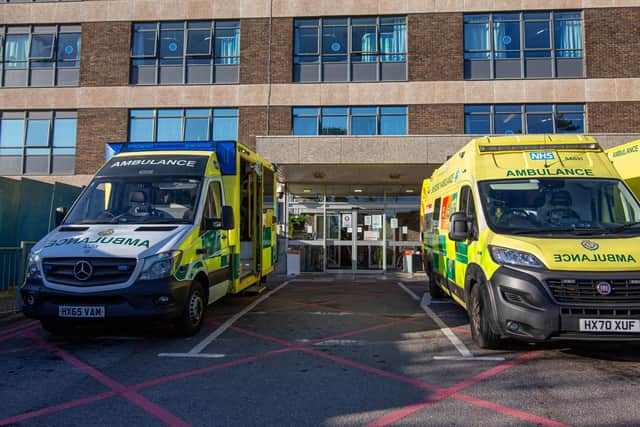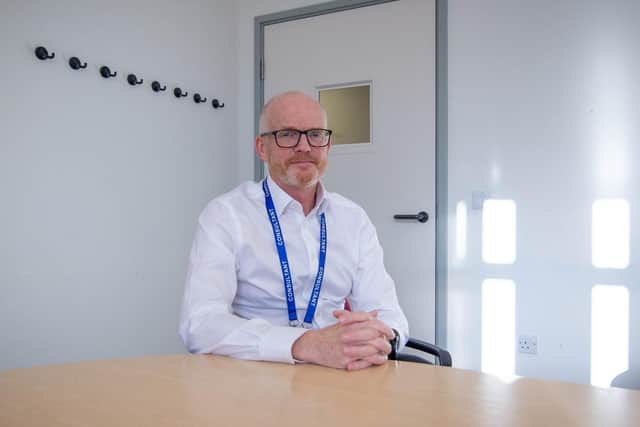QA Hospital in Portsmouth at more than 95 per cent capacity, data reveals
and live on Freeview channel 276
From December 26 to January 1, the trust was inundated with patients needing beds and the average number of occupied beds each day sat at 1,057 and the amount of beds in the hospital during this time being 1,110, forming a 95.2 percent capacity.
Advertisement
Hide AdAdvertisement
Hide AdDr John Knighton, medical director for the trust, said: ‘We are now on day 12 of running our services in critical incident mode. This means we can prioritise urgent and emergency care, redeploy staff to the areas with the greatest need and treat additional patients in our wards and hospital spaces that we wouldn’t do normally. All of our staff are focused and committed to ensuring we can care for everyone who needs us as quickly and safely as possible.


‘We would like to thank the local community, patients and their families for their patience and support. Your experience as a patient may not be up to standards that we aspire to, or you expect from us. However, we would like to reassure you that our clinical standards and patient safety will not be compromised.’
The hospital is asking that people only use the emergency department if they are suffering with life threatening illness or injuries. If you need medical attention but it is not urgent, then please get in contact with urgent treatment centres, NHS 111 online, your GP or pharmacy.
Liz Rix, chief nurse at QA Hospital, added: ‘Patient safety is our top priority, and our staff are doing everything they can to treat everyone as quickly and safely as possible. Volunteers have stepped up to help us feed patients, move patients to wards, and get water and drinks to ensure patients stay hydrated. And we are also working with our partners and teams in the community to avoid hospital admissions and find suitable accommodation and packages of care so people can return back to their home as soon as possible.’


Advertisement
Hide AdAdvertisement
Hide AdThe trust is experiencing extreme pressure due to the number of patients who need continued care and the amount of new patients arriving at the emergency department, which has resulted in delays in admitting people to wards. The hospital has opened up extra beds and they have set up larger discharge areas for patients to return home.
A Department of Health and Social Care spokesperson said: ‘We recognise the pressures the NHS is facing following the impact of the pandemic and are working tirelessly to ensure people get the care they need, backed by up to £14.1 billion additional funding for health and social care over the next two years.
‘This includes investing an additional £500 million to speed up the safe discharge of patients from hospital, creating the equivalent of 7,000 more beds nationally and establishing 24/7 data driven system control centres in every local area to manage demand and capacity’